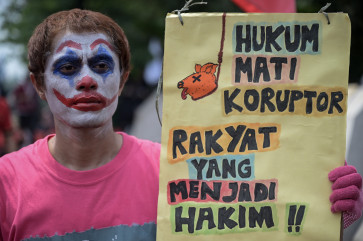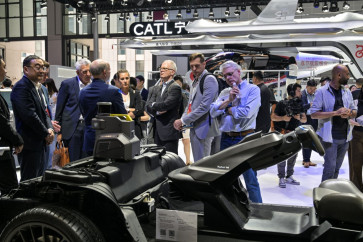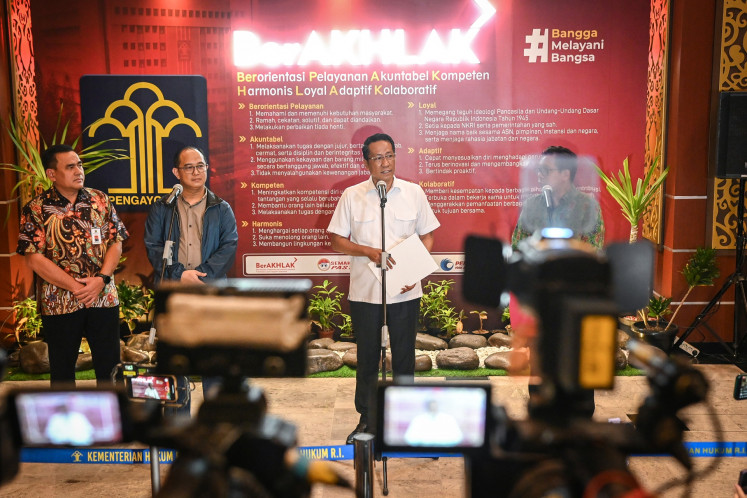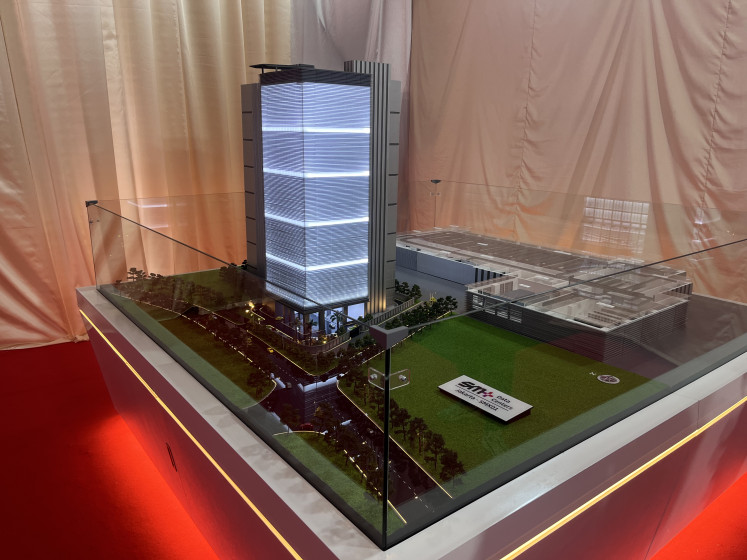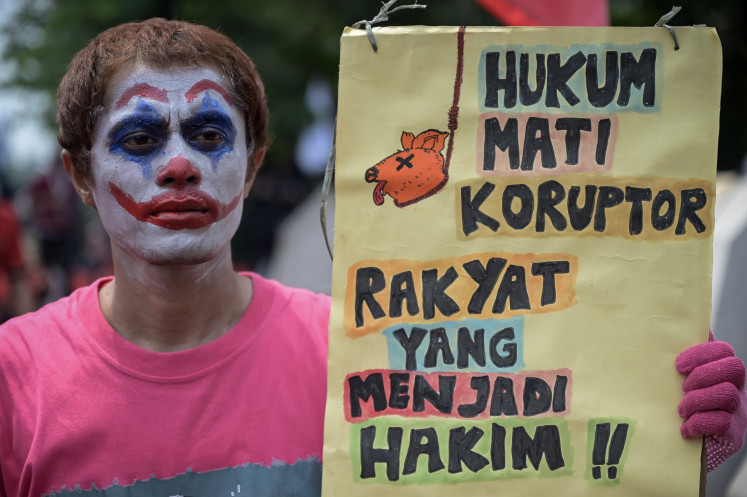Popular Reads
Top Results
Can't find what you're looking for?
View all search resultsPopular Reads
Top Results
Can't find what you're looking for?
View all search resultsGovt to keep export restriction despite Japan protest: Official
Indonesia will not loosen regulation that will restrict raw ore exports, despite potential protests from key importers such as Japan, a senior official has said
Change text size
Gift Premium Articles
to Anyone
I
ndonesia will not loosen regulation that will restrict raw ore exports, despite potential protests from key importers such as Japan, a senior official has said.
Newly appointed Deputy Energy and Mineral Resources Minister Susilo Siswoutomo told The Jakarta Post on Friday that Indonesia, the world’s largest tin and nickel ore producer, would not ignore its mineral trade policy for Japan, the world’s second-largest nickel consumer.
“We will proceed with our plans to increase the value of the downstream sector ahead of the full ban on the exports of unprocessed mineral ore, which is slated to begin in 2014,” Susilo told the Post in an interview.
The deputy minister was commenting on the possibility that Japanese Prime Minister Shinzo Abe, who arrived in Jakarta on Friday for a planned two-day visit, would ask President Susilo Bambang Yudhoyono to rethink the ban.
Abe has cut his visit short to only a single day to deal with the crisis in Algeria, which involves numerous Japanese hostages.
Japan, a long-standing trading partner of Indonesia, has been pushing the nation to ease its mineral ore export restrictions, which were enacted to implement the 2009 Mining Law.
The law stipulates that miners will not be able to export raw mineral ore as of 2014 to encourage domestic processing and the development of local smelting plants. Smaller firms will have to sell their raw ore to local smelters before export under the regulations.
In a bid to avoid over-exploitation of the nation’s mineral resources in the run-up to the ban’s implementation, regulations were introduced in May that imposed tougher requirements on the export of 65 types of raw minerals, including metal ore.
A 20 percent export tax on minerals was also imposed.
Seven firms, including publicly listed PT Aneka Tambang (Antam), have since begun to build smelters, while an additional 154 firms have sent proposals to the government to build their own smelters, according to information from relevant ministries.
However, the export ban remains contentious. Tensions rose last year between then-deputy energy and mineral resources minister Rudi Rubiandini, now head of interim upstream oil and gas regulator SKKMigas, and Japanese officials, who threatened to terminate paper imports from Indonesia should the ban be implemented.
Japan has also threatened to file a complaint with the World Trade Organization (WTO). Rudi, at the time, said that Indonesia might in turn end supplying natural gas to Japan, Indonesia’s largest gas buyer.
Although one item on Abe’s original agenda for his visit in Jakarta was to ask Yudhoyono to rethink the policy, Susilo said that Indonesia would stand fast.
“Japan has been enjoying the supply of our raw mineral ore for years. It is time for Indonesia to have the benefit instead,” Susilo said.
Local miners have also protested the regulations. The country’s nickel-mining association filed a complaint to the Supreme Court 2014 last year asking for a review of Energy and Mineral Resources Ministerial Decree No. 7 on mineral processing.
The court eventually annulled several articles in the decree, including a raw mineral exports ban.
Earlier this week, the ministry’s director general for coal and mineral affairs, Thamrin Sihite, said that the ban under decree No. 7 has already been eased by ministry decree No. 11 on mineral processing.
“It is true that under the decree No. 7 we implemented a full ban on unprocessed mineral ore exports, but we have revised the ban in another decree,” he said.


